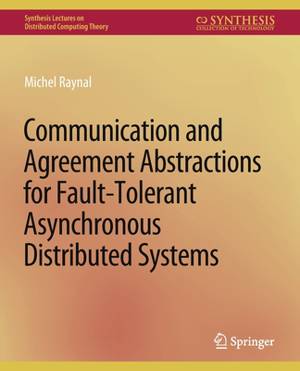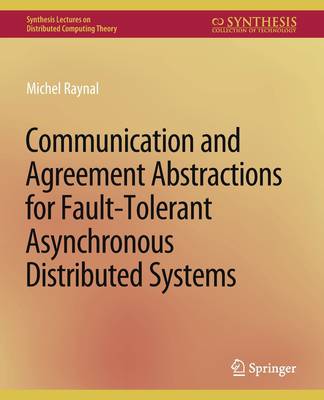
- Afhalen na 1 uur in een winkel met voorraad
- Gratis thuislevering in België vanaf € 30
- Ruim aanbod met 7 miljoen producten
- Afhalen na 1 uur in een winkel met voorraad
- Gratis thuislevering in België vanaf € 30
- Ruim aanbod met 7 miljoen producten
Zoeken
Communication and Agreement Abstractions for Fault-Tolerant Asynchronous Distributed Systems
Michel Raynal
€ 53,45
+ 106 punten
Omschrijving
Understanding distributed computing is not an easy task. This is due to the many facets of uncertainty one has to cope with and master in order to produce correct distributed software. Considering the uncertainty created by asynchrony and process crash failures in the context of message-passing systems, the book focuses on the main abstractions that one has to understand and master in order to be able to produce software with guaranteed properties. These fundamental abstractions are communication abstractions that allow the processes to communicate consistently (namely the register abstraction and the reliable broadcast abstraction), and the consensus agreement abstractions that allows them to cooperate despite failures. As they give a precise meaning to the words "communicate" and "agree" despite asynchrony and failures, these abstractions allow distributed programs to be designed with properties that can be stated and proved. Impossibility results are associated with these abstractions. Hence, in order to circumvent these impossibilities, the book relies on the failure detector approach, and, consequently, that approach to fault-tolerance is central to the book. Table of Contents: List of Figures / The Atomic Register Abstraction / Implementing an Atomic Register in a Crash-Prone Asynchronous System / The Uniform Reliable Broadcast Abstraction / Uniform Reliable Broadcast Abstraction Despite Unreliable Channels / The Consensus Abstraction / Consensus Algorithms for Asynchronous Systems Enriched with Various Failure Detectors / Constructing Failure Detectors
Specificaties
Betrokkenen
- Auteur(s):
- Uitgeverij:
Inhoud
- Aantal bladzijden:
- 251
- Taal:
- Engels
- Reeks:
Eigenschappen
- Productcode (EAN):
- 9783031008726
- Verschijningsdatum:
- 5/05/2010
- Uitvoering:
- Paperback
- Formaat:
- Trade paperback (VS)
- Afmetingen:
- 190 mm x 235 mm
- Gewicht:
- 480 g

Alleen bij Standaard Boekhandel
+ 106 punten op je klantenkaart van Standaard Boekhandel
Beoordelingen
We publiceren alleen reviews die voldoen aan de voorwaarden voor reviews. Bekijk onze voorwaarden voor reviews.







